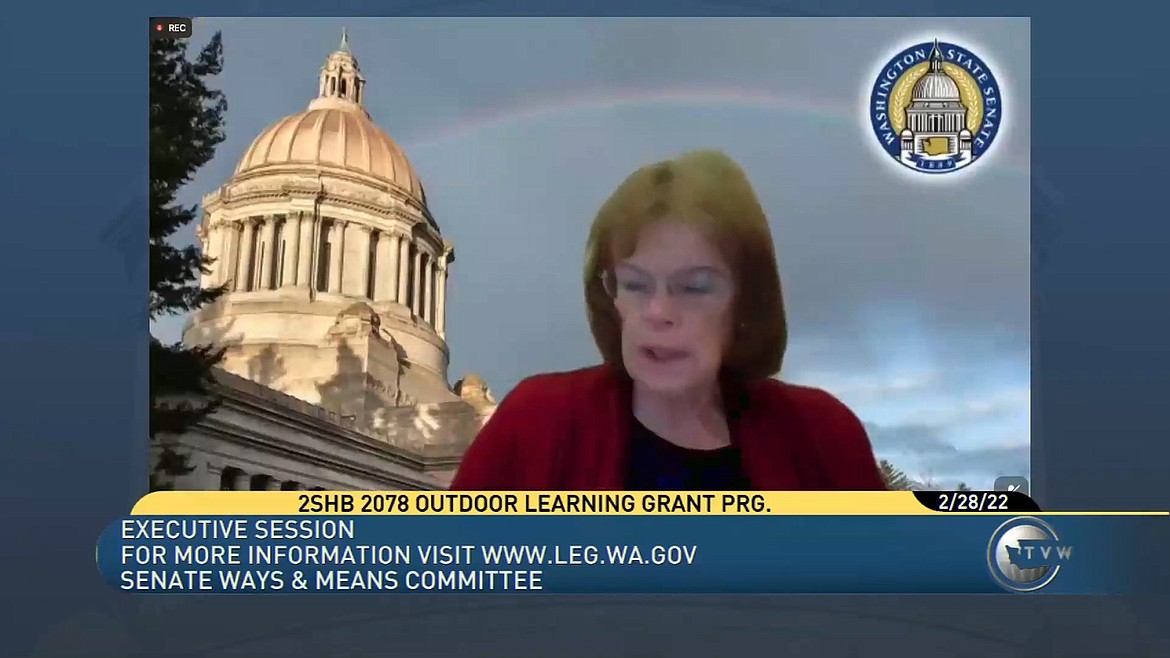Outdoor school could bridge COVID-19 learning gaps
OLYMPIA — Middle school-age students may have more learning opportunities outside of the classroom under legislation considered by the Senate on Monday.
Sen. Judy Warnick, R-Moses Lake, said the proposed Outdoor School for All program is a reinvestment in the community. District 13 is chock-full of agricultural communities that could benefit from increased industry exposure to children, she added.
“We need to get kids out,” Warnick said. “We need to let young people experience what careers are available in agriculture.”
House Bill 2078 would establish a permanent Outdoor School for All grant program in the Office of the Superintendent of Public Instruction.
Warnick said the program could pique interests in STEM and agriculture-related fields, which students could further pursue in high school with programs such as Future Farmers of America, 4-H, robotics and others.
Gov. Jay Inslee recently proposed $52 million to fund Outdoor School for every fifth- and sixth-grade student in the state. The proposal follows the legislature’s initial $10 million investment last spring.
Initial funding provided 20,000 students with up to five days of learning opportunities at an overnight camp. The legislature prioritized schools identified as most impacted by opportunity gaps.
Warnick said this bill could have a technological impact as well. Society is always moving in a direction that prioritizes innovation. Warnick said these advances are utilized in many industries, including agriculture.
She said that farmers now use drones to check their fields and perform other activities; even county adjusters use the tech. This program could introduce a variety of careers to students with ranging interests.
“You’re going to be using technology no matter what,” Warnick said. “It’s not just looking at trees and plants.
Kittitas County is home to an outdoor program that began after a pilot in 2013. Sibyl Maer-Fillo, Washington Outdoor School founder and director, said there is immense community support for the local program, which could extend all through the state with HB 2078.
Legislators should make sure, though, that these few days of outdoor learning are not left at the door when kids return to school, she said. These experiences are valuable and should be taken back into the classroom.
“Outdoor learning and any time kids can spend connecting in the natural world is crucial for our survival as a species,” she said.
Maer-Fillo worries legislators might see this legislation as crossing off another box. Kids need outdoor education, but one bill cannot do everything, she said; she urged the legislature to continue building off HB 2078 in the future.
HB 2078 was passed out of the Senate Ways & Means Committee on Monday onto the Rules Committee for second reading. The legislation is anticipated to reach the Senate Chamber soon.

